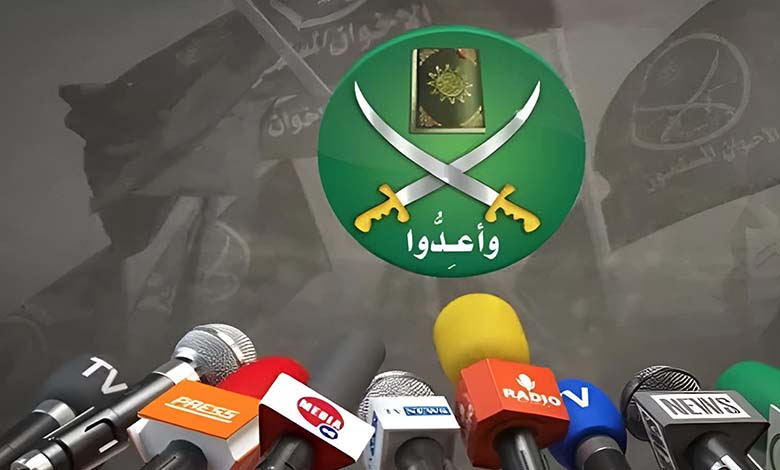A Journalist Recounts His Experience with the Muslim Brotherhood: Their Methods and Contradictions

Egyptian journalist Ahmed Ramzi has shared his experience with the Muslim Brotherhood, revealing their methods and the contradictions he observed. Ramzi explained that his journey with the movement began at an early age, specifically during his second year of middle school, when he joined the Muslim Youth Association as part of the scouts.
He stated, during his appearance on the show “Reviews” broadcast on (Al Arabiya) channel, that the activities carried out by these associations were not merely traditional scouting activities but also carried a clear proselytizing message. He said: “They dedicated part of the time to holding religious sessions and short sermons after scouting activities. Initially, I didn’t pay much attention, but over time, I began to notice that these sessions were promoting certain ideas, the source of which I was unsure about.”
Ramzi also mentioned the significant influence of the victimhood narrative promoted by the Brotherhood, saying: “I was convinced that they were oppressed and defending a just cause,” adding that “this feeling of sympathy made me more involved in their activities and ideas.”
When he joined university, Ramzi was surprised to find that his name had already been registered with the group, and the activities of the Muslim Brotherhood then took on a more organized and rigorous nature, encompassing not only religious proselytizing but also sports and training activities.
He recounts: “We participated in morning parades and trained in physical fitness. They organized training camps in places like Nasr City, where we engaged in sports activities and attended religious lessons. We would perform the dawn prayer in congregation and listen to religious sermons afterward.”
Ramzi also recalled incidents that led him to reconsider his affiliation with the Brotherhood, including an episode where a mobile phone was stolen during a gathering in an apartment belonging to the group. “One of the members lost his phone and accused the others of theft. I tried to explain to them that there could be someone within the group responsible for the theft, but they completely rejected the idea and claimed that a jinn had stolen the phone to sow discord among us. This incident made me realize that there was a significant flaw in the thinking and logic within the movement.”
He also observed that many leaders behaved in ways that contradicted the principles they preached, living luxurious lives while advocating poverty and asceticism. This paradox deepened his doubts and led him to seriously consider distancing himself from the group.
After leaving the Muslim Brotherhood, Ramzi faced many personal challenges. He said: “It wasn’t easy. I was surrounded by people who considered themselves friends and brothers, but as soon as I announced my departure from the movement, many of them changed their attitude.”
He continued: “Critical thinking allowed me to understand many things that had previously escaped me. I became more open to different ideas and more capable of distinguishing between facts and lies.”
Ramzi added: “I learned that religion is not just about rituals or slogans, but it represents an individual relationship between a person and their God. Faith should stem from inner conviction, not from social or ideological pressures.”
-
Is lying a fundamental doctrine in the Muslim Brotherhood?
-
The International Muslim Brotherhood Organization Has Undergone Several Changes Before Reaching Its Current Form: Learn About Them
After separating from the movement, Ramzi decided to focus on his career in journalism. “I decided to start a new life and focus on my professional future. I enrolled in the Faculty of Arabic Language and began working in journalism. This period was full of challenges, but I was determined to succeed and achieve my dreams.”
Although his experience with the Muslim Brotherhood had a profound impact on his approach to journalism, it also gave him “a more critical perspective on everything I read and wrote.” Ramzi explained: “I approached every piece of information with caution and ensured I verified it thoroughly. This experience taught me the importance of objectivity and neutrality in journalistic work.”
-
Muslim Brotherhood Leaks… Book Analyzes the Role of Drama in Exposing Brotherhood’s Plots
-
Analysts reveal the danger of Muslim Brotherhood expansion in European Societies
He concluded by saying: “Today, I am proud of what I have achieved. My experience with the Muslim Brotherhood was a great lesson, but I learned a lot from it, and I became stronger and more aware. I feel that I have contributed to raising awareness among people and revealing the truth, which is the ultimate goal of any journalist.” He added: “Despite all the difficulties, I never regretted my decision to leave the group and work to uncover its reality.”












